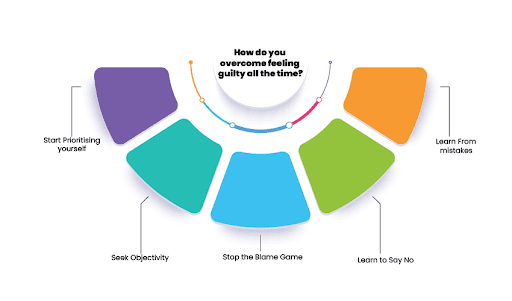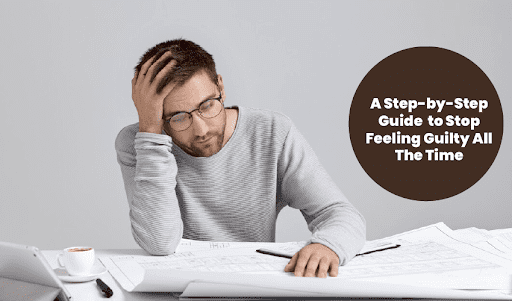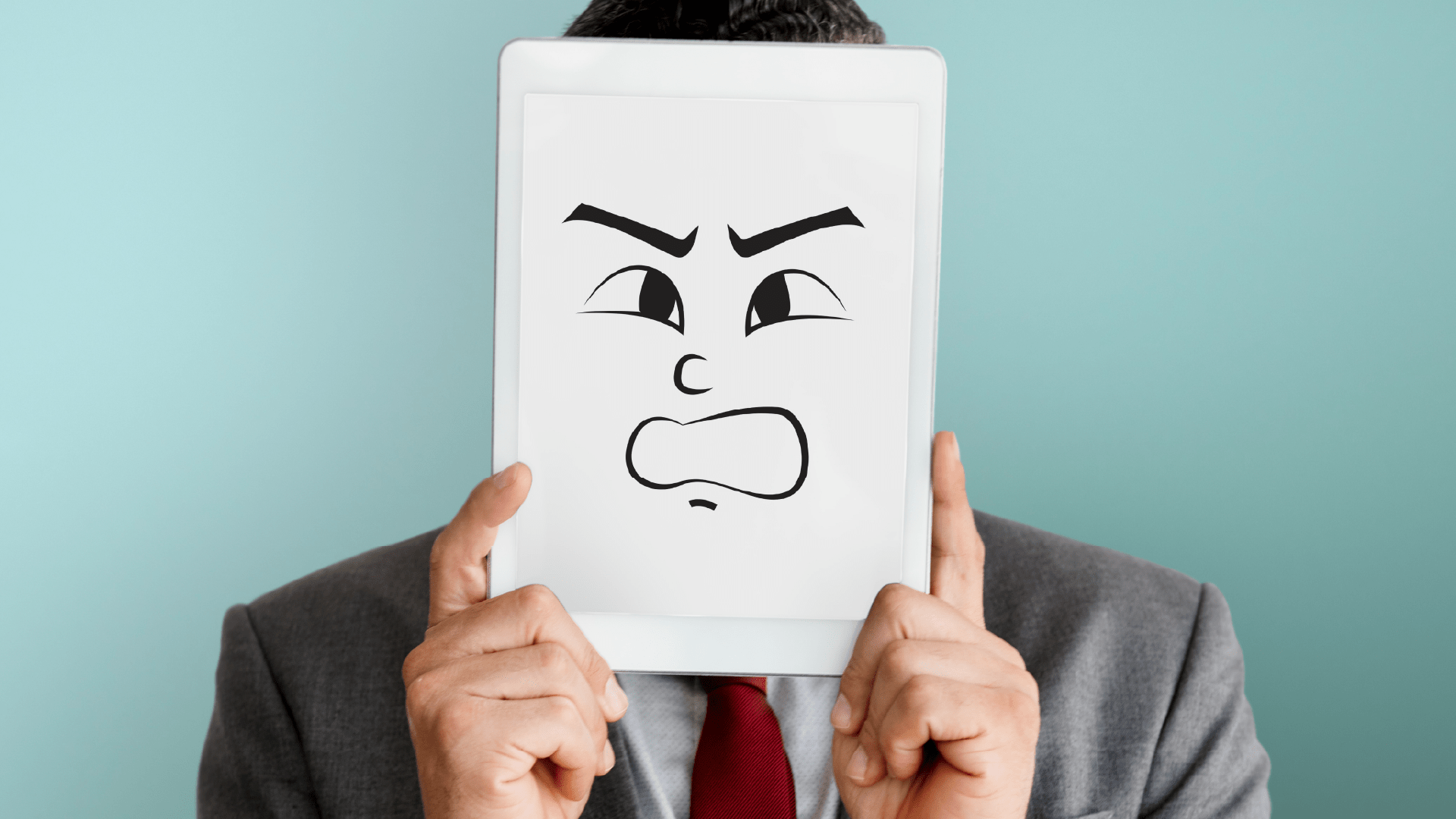Introduction
Guilt is a pervasive but unconstructive emotion that is very common among us. What if we felt guilty for not working on this topic earlier, and now, we feel twice as guilty about feeling guilty all the time in the first place? This plethora of emotions is termed “meta-guilt.”
It’s unimaginable if we constantly lived our life like that, right? We don’t have to. This article is your guide to learning how.
Our Wellness Programs
What is guilt feelings?
Guilt is a pervasive but unconstructive emotion that is very common among us.
Looking for services related to this subject? Get in touch with these experts today!!
Experts

Banani Das Dhar

India
Wellness Expert
Experience: 7 years

Devika Gupta

India
Wellness Expert
Experience: 4 years

Trupti Rakesh valotia

India
Wellness Expert
Experience: 3 years

Sarvjeet Kumar Yadav

India
Wellness Expert
Experience: 15 years

Shubham Baliyan

India
Wellness Expert
Experience: 2 years
Why am I feeling guilty all the time?
Often, we might feel guilty for not spending quality time with our friends or spending time with our families on the weekends. We might get guilty for not learning a new language or being fruitful all day. We might also feel guilty for not being productive enough, being couch potatoes, or overworking during the weekends. This list is endless.
Simply put, guilt is the nauseating twist in our stomach that accompanies the knowledge that we have hurt someone else or are trying to change what we never can – an existing reality. Struggling with recurring self-judgement and criticism related to memories of what happened and fear of others discovering is also common in guilt.
What is the reason for feeling guilty all the time?
Comparing ourselves to others’ success stories is the prime cause of feeling guilty all the time.
It is essential to explore the source of guilt to understand what is causing us to feel guilty. Before successfully navigating any responsibility, we need to recognise the original cause. Some of the common reasons for guilt are as follows:
- Long periods of stress or trauma
- The dilemma between personal philosophy and life choice
- Instability regarding physical or mental health
- Inconvenient emotions and thoughts
- Taking care of your own needs when you believe you should focus on others
If we are already suffering from any of the above issues, even the slightest activity or personal achievement is enough to make us feel guilty. Guilt primarily arises from a personal choice.

All that self-blame can take is a significant toll on your mental and physical health. Here is how one can retrain your brain to stop feeling guilty.
- Start prioritising yourself: People should wear their “oxygen mask” before helping others. People should try to better care for themselves and delete their self-sabotage thoughts.
- Seek Objectivity: People should try to lean on those close to them to provide as they will probably not be judgmental and can provide support, love and direction.
- Stop the blame game and give yourself a true retreat. Society sees things in its way. People should learn to ignore rather than be the sole “guardian of society” and inflict a feeling of “Unnecessary guilt”.
- Be a friend of yourself, realise you weren’t necessarily wrong and forgive yourself if necessary. No one is fully good or awful. Even if they commit a small mistake, you don’t have to spend their life repenting for it. Self-criticism paralyses the power of taking action. Be self-compassionate and believe in the ability to fix minor mistakes and overcome guilt.
- Learn to say no. Imitate it, refuse an extra burden, and practice mindfulness as it gives a perspective.
- Focus on the everyday things you do, know your capabilities, and appreciate yourself and appreciate them since you might be your own worst critic by just enlisting them. Just diminish the underperforming feeling.
- Learn from mistakes but look ahead, not behind. Pondering over the things you can’t change won’t help you.
Conclusion
We can classify guilt into three categories: (1) natural guilt or regret over something that someone failed to achieve; (2) toxic or free-floating guilt—the remorse of not being a good person or being up to the mark; and (3) existential guilt, the feeling of negation that arises from the injustice perceived from time to time, and out of the obligations to life itself.
Thankfully, learning how to stop feeling guilty is doable with time and new methods of mental health maintenance. One can always learn to curb their feelings of guilt and slowly bring about changes in their daily lives. The sooner they take this step towards a positive lifestyle, the better it is. Sharing your feelings with a close friend can be an excellent remedy in such cases. Everyone needs someone to cope with difficult emotions. Maintaining stable bonds with friends and your dear and near ones is necessary.
Responsibility does not work against situations that are not changeable. In extreme cases, when these feelings continue to linger and become overwhelming, it is suggested to seek the help of a trusted professional. Share your problems or mental health issues with a psychologist who can help you pave your way out of this depression.
Please visit United We Care and get to the peak of your mental and physical health for further details.
















